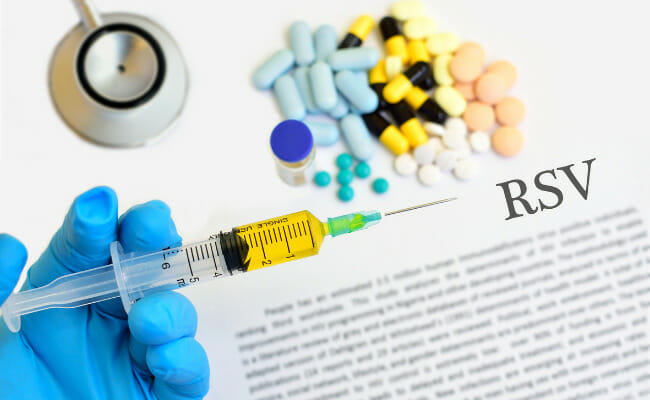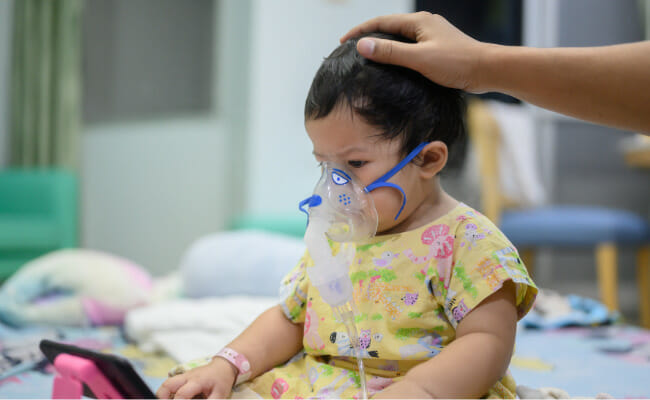RSV cases on the rise: What you need to know
As the cold season approaches, several cases of respiratory illnesses are on the surge. Children’s hospitals in the US are looking at a common respiratory virus, RSV. It’s a virus that can cause mild to severe breathing difficulties in babies.
Aside from the Covid cases circulating at increasing levels, flu and pediatric illnesses are also rising. Although Covid cases in kids are at controllable levels, RSV is the dominating virus that has increasing cases in parts of the US and Canada. Children’s hospitals in Canada are also experiencing an increase in cases.
A vaccine expert and pediatrician at Children’s Hospital of Philadelphia, Dr. Paul Offitt, said that most children could recover independently from coronavirus. Especially if treated with plenty of rest and fluids. However, some kids with existing lung issues and very young children may require more care.
Furthermore, RSV cases are surging, which health experts are worried about. The cases of this virus dropped two years ago when the pandemic hit, and daycares and schools were closed. With lessening restrictions in 2021, doctors observed an alarming rise in the fall and winter virus.
Dr. Juan Salazar of Connecticut Children’s Hospital said, “I’m calling it an emergency.” The hospital is also shifting patients into spaces not usually for beds and playrooms due to the increasing number of patients. To give full details about this virus, here’s a look at RSV and what needs to be avoided.
What is RSV?
RSV stands for the respiratory syncytial virus. It’s the most common source of respiratory tract illness in young children globally. RSV also causes mild cold-like symptoms. Almost all children contract the infection in the US at two years old.
Usually, people with the infection are contagious for three to eight days. Babies and people with weak immune systems can spread the virus for up to four weeks. However, there is still no vaccine for this, but studies are ongoing.
Symptoms of RSV in babies
Covid, flu, and RSV are all viruses that target the respiratory system. Thus, it can be tricky for parents to know which one their babies are dealing with. This is according to Dr. Kristin Moffitt, an infectious disease specialist at Boston Children’s Hospital.
In addition, even doctors can hardly determine which is which. They can only clearly diagnose the virus by using a test. Here are the symptoms of RSV that could look the same as Covid.
- Headache
- Cough
- Runny Nose
- Muscle aches
- Fever
- Congestion
The less common symptoms are:
- Vomiting
- Stomach Ache
- Diarrhea
Who can affect RSV?
Everyone is susceptible to RSV. However, infants, vulnerable people with lung infections, and older adults face the most threat.
In the US kids under five years old, RSV commonly causes 58,000 hospitalizations, with 500 deaths yearly. While for adults 65 and older, RSV leads to 177,000 hospitalizations with 14,000 deaths annually.
Dr. Melanie Kitagawa of Texas Children’s Hospital said that when babies struggle with breathing which can affect eating, “that’s when we start to worry. They’re breathing fast, breathing deep. We see them using muscles in their chest to help them breathe. These kids have difficulty taking a bottle because their breathing is impacted, and they can’t coordinate both simultaneously.”
Why is there an RSV surge now?
RSV is reaching several highly vulnerable babies and children who became too sheltered from simple bugs during the pandemic lockdowns. After more than two years of wearing masks, their immune systems aren’t ready and as vital to fight the virus.
In a news release, Dr. Elizabeth Mack of the Medical University of South Carlina said, “South Carolina is drowning in RSV.” The sudden surge came earlier than usual this year. For babies, their mothers may not have contracted the virus during pregnancy which could give the newborns some immunity.
US health officials have recorded a rise in the cases this month with reports of respiratory illnesses. Which they say is due to the early spread of the flu in the South. In addition, over 7,000 tests came back positive for RSV last week.
Doctors’ recommendation for RSV
Although there’s no particular treatment, managing the virus and letting it run on its normal course is essential. Doctors might prescribe an inhaler or oral steroids to make breathing manageable. While in severe cases, doctors can give oxygen, a ventilator, or a breathing tube.
Moreover, doctors also advise washing hands and staying home when sick to avoid spreading the virus. During this flu season, doctors sometimes prescribe injecting an antibody-based medicine for vulnerable babies and premature infants.
Dr. Russell Migita of Seattle Children’s Hospital advised that if your child has breathing problems, “do not hesitate” to call 911 or rush to the nearest emergency department. But for less severe cases, Dr. Migita advised calling a regular healthcare provider for advice.





